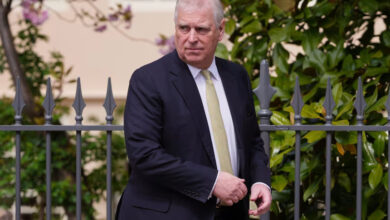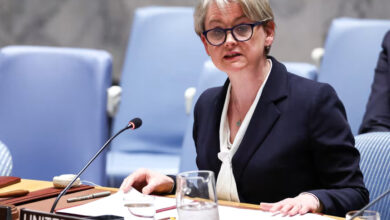London–“Wipe off David Cameron’s smile, let's go Tunisian style.” This was the chant of student protesters marching in London this week against the austerity measures of Britain's coalition government (led by Cameron). It demonstrates the extent to which activists have been inspired by Tunisia’s popular uprising and feel that resisting the government in their own country is in itself an act of solidarity.
A public meeting at the University of London’s student union was held on Thursday evening in solidarity with Tunisians, called by the Coalition of Resistance (CoR). While the CoR are a British organization whose primary goal is to mobilize opposition to government spending cuts, they place themselves within the broader framework of the global recession (their first meeting was held in solidarity with Greek strikes last year) and resistance to neo-liberal economic models.
Labour party MP Jeremy Corbyn is an active member of CoR. He has been vocal in his support for Tunisia’s struggle and his criticism of IMF-led economic strategy implemented in many developing countries, including Tunisia. He raised this issue in parliament earlier this week: “the toxic combination of high unemployment and corruption brought about the huge demonstrations and the downfall of the president, at the same time the World Bank and International Monetary Fund supported and approved of the economic strategy adopted by Tunisia.”
Speaking at the CoR meeting Corbyn stressed the importance of the “internationalization of that protest, and recognition that the economic crisis is being used to widen the gap of rich and poor.” He added, “we have lots to learn from Tunisia” as it moves in the opposite direction to the rest of the world in these times of economic hardship, that is, away from the disenfranchisement of the masses.
Leftists and activists are casting Tunisia’s regime overthrow as the first revolution of the world economic crisis, an example for the rest of the world to follow in opposing unfair economic policy and repression. As Joseph Daher, who writes for left-wing political publication Counterfire, said “continuation of the revolution is essential, and hopefully it will spread.”
For the moment though, the spectacle of deposed President Zine al-Abdine Ben Ali fleeing the country he had held in his grip so firmly was a great victory in itself and a source of pleasure for Tunisian exiles. Mohamed Ali, now CEO of the Islam Channel in the UK, is a former political prisoner from Tunisia. Remembering his own flight to Algeria 21 years ago, he remarked “I was the happiest person on earth as on Friday night I watched the dictator looking for somewhere to stay… He fled the country like a rat looking for somewhere to go.”
Tunisian exiles and supporters have rallied outside the Tunisian embassy in London, where there have been ongoing protests since 17 December, the day Muhammad Bouazizi’s now iconic act of self-immolation sparked national rebellion. Kamal Mohamed, a political exile who fled Tunisia in 1991 after he was arrested for his involvement in the student unions, is one of the organizers. Although “the real action is inside Tunisia…we wanted to express our anger, and we are here to express our commitment to continuing this and our solidarity with the people inside Tunisia to carry on the revolution to topple this corrupt organization [the ruling party],” he says. Those responsible must be held to account, as “so many of the ruling party will get away with their crimes. Like the Baath party they were so vicious to the Tunisian people, and they used all the country’s resources to grip power.”
Habib Ben Gharbia is another Tunisian protest organizer and has been studying in the UK for the last four years. While he recognizes that the battle is not won yet he is optimistic about the future. He would have looked to stay in this country after graduation but “now we have our country back lots of Tunisians are thinking about going back… It’s the moment that our country needs us.”
This may be the start of a new era for Tunisians living in exile. Kalthoum Khalladi and her husband left Tunisia in 1990, owing to her husband's involvement with the opposition Al-Nahda movement. This week, her brother-in-law called for the first time since they fled, no longer fearful that such a phone call could land him in trouble with the regime.
Many are wondering if this could be new era for more than just Tunisia, with the Arab world’s most populous country pointed to as a prime target for a possible domino effect. “The revolutionary potential of the region might explode… Egypt might be a future source of revolution,” said Daher.
At the foot of Marble Arch in central London last weekend a group of Egyptian activists gathered in solidarity against sectarian violence and oppression. Talk soon turned to Tunisia, and whether Egypt could witness a similar revolution. Protestor Mohamed Ibrahim remarked “I am of course with the Tunisian people in all that is happening, and I respect the will of the Tunisian people. God willing, it could happen in Egypt if people can stand as one.”
Salah Fadl, organizer of the UK branch of Egypt's National Association for Change, explained: “I think all the circumstances and the objective reality that you’ve got in Egypt now point towards a move in that direction. There is at least a risk that some uprising or unrest may take place in Egypt… The Egyptian people are very patient by nature, they’re very tolerant by nature, but eventually when life becomes so difficult they will take to the streets.”




